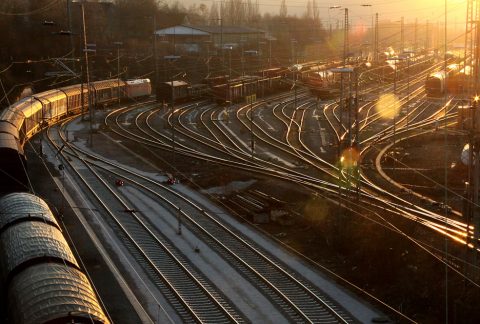Romanian farmers want new ban on Ukrainian imports, EU responds with funds

Romanian farmers appear discontent with the status of Ukrainian products imported to their country. They have sent an official letter to the EU Commission head, Ursula von der Leyen, demanding the reintroduction of an import ban on cereals and oilseeds starting 23 October. Four organisations signed the letter and sent it to Von der Leyen on 13 October. Coincidentally, on the same day, the Commission released a 24 million euro fund package to support infrastructure upgrades between Ukraine and Romania.
Despite Romania attempting to keep its market open for Ukrainian products and their transit by not extending the preexisting ban after mid-September and by applying a special licensing regime on imports, the country’s farming sector pushes for a ban.
Marcel Ciolacu, the Romanian Prime Minister and Florin Barbu, the Romanian Agriculture Minister, have pledged to assist Ukraine in exporting products via Romanian infrastructure. The two countries are currently working together to optimise their joint export control plan and avoid disrupting the Romanian farming sector. The special licensing for stock replenishment purposes dedicated to farmers and food processors was issued in this context.
24 million euros for Romanian ports
While opposing voices on Ukrainian imports reappear, demanding the EU Commission to take action and ban them, the EC responds with infrastructure funds to improve the supply chain between Ukraine and Romania. Brussels released 24 million euros that are destined to support investments in Romanian sea and inland ports in the context of the war in Ukraine and supporting solidarity lanes.
“The aim of the measure is to overcome the shortcomings of the capacity of the ports’ superstructure, among others, for the procurement of equipment for short-distance transport of freight and the extension of storage capacities for temporary storage. It will also facilitate grains transport and transit via Romanian ports that need urgent support to handle the increased traffic flows of goods,” reads the EC document.
The funding does not target rail infrastructure. However, the last three months have proved that inland shipping through Danube River ports is an efficient transport solution in conjunction with railways. Consequently, the fact that critical port infrastructure will be able to carry-out investments of “up to 2 million euros per beneficiary by the end of 2023,” according to the EC, could mean that the increased capacity could also reflect on rail since more cargo will be transported and stored overally.
The letter and the funding were coincidentally communicated on the same day as mentioned before, and despite the later aiming to boost transport infrastructure and links it will probably make no difference to the farmers’ demands that want less of what the Commission offers. In this sense, it should not be surprising if the Romanian-Ukrainian negotiations on optimising export controls ending by late October reach a dead end and a ban is introduced again. The Romanian government seems willing to keep a more neutral position than countries like Poland, Slovakia and Hungary. If pressure from the farming sector persists, though, nothing is guaranteed.




